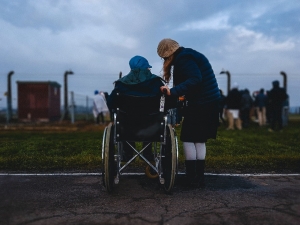Addiction is a challenging and multifaceted issue that affects countless individuals and their loved ones. The path to recovery, though difficult, can lead to profound healing and personal transformation. Understanding the process of recovery helps those going through it, as well as their families, manage the ups and downs of this journey. Here’s what you should know about addiction recovery.
Recognizing the Problem: The First Step
The journey to recovery begins with recognizing and admitting the presence of a problem. For many, this is the hardest part of the process. The stigma surrounding addiction often leads people to deny the extent of their struggles, making it even more difficult to seek help. However, accepting that addiction is a medical condition rather than a moral failing is a vital step toward recovery.
Once someone admits they have an addiction, they can explore various treatment options. This can range from therapy and counseling to medical treatment, depending on the nature and severity of the addiction.
Various Treatment Paths: Tailored to the Individual
Addiction recovery is not a one-size-fits-all process, as each person’s journey is unique. There are multiple approaches to treatment, and often, a combination of methods is used for the best results. Some of the most common recovery treatments include:
- Therapeutic Interventions: Cognitive-behavioral therapy (CBT) and other counseling techniques help individuals understand the psychological roots of their addiction and develop healthier coping skills.
- Medication-Assisted Therapy (MAT): For people struggling with substance abuse, MAT can help manage withdrawal symptoms and reduce cravings, often in conjunction with therapy to support recovery.
- Peer Support Groups: Programs like Alcoholics Anonymous (AA) or Narcotics Anonymous (NA) provide community and encouragement through group meetings where individuals share experiences and offer support.
- Inpatient vs. Outpatient Care: Depending on how severe the addiction is, some individuals may need inpatient treatment, where they live at a rehab facility, while others may succeed in outpatient programs that allow them to live at home while attending therapy.
Overcoming Challenges in Recovery
Recovery is not without its challenges. Many individuals face cravings, triggers, and the temptation to relapse along the way. It’s important to understand that setbacks are a normal part of the recovery process, and they don’t signify failure. Instead, they are opportunities to learn and grow.
Ongoing support from friends, family, and treatment professionals is crucial during this time. Additionally, developing healthy coping mechanisms and replacing old habits with new, sober routines is key to overcoming obstacles.
Maintaining Sobriety After Recovery
Once significant progress has been made in recovery, the journey doesn’t end there. Sobriety requires constant commitment and effort. Many people in recovery continue therapy, stay active in support groups, and avoid environments or situations that may trigger relapse.
Living a meaningful life after recovery involves taking care of one’s physical and mental health, rebuilding relationships, and setting long-term personal goals. The journey may still have its challenges, but with persistence, individuals can thrive in their new, sober lives.
Conclusion: The Power of Recovery
The road to addiction recovery may be difficult, but it’s a rewarding and life-changing process. With the right resources, support systems, and a commitment to personal growth, recovery is possible. Every person’s experience is different, and while it may take time, healing is achievable. The journey toward recovery is ultimately about finding hope, strength, and a renewed sense of purpose in life.






